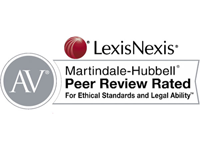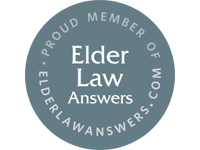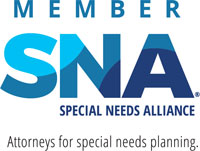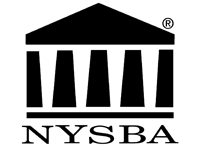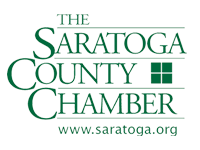Date: June 8, 2017
Like a Bad Penny….
It has been well over a year since our last issue of The Special Needs Estate Planner. We have been fortunate to see our practice continue to grow in the interim, but this was not the reason for the delay in publication. Truth be told, we have been wrestling with the decision to continue with the newsletter.
During the past few years we have seen a substantial increase – some might call it an onslaught – in the amount of information on special needs planning, elder law and other estate planning topics. These days a reader can find information on internet sites, blogs, social media pages and in good ol’ fashioned print publications. It left us wondering whether our modest little publication would get lost in the shuffle.
In the end, we decided to continue with the newsletter for two reasons. First, while the amount of information has increased substantially, much of it is very general in nature and does not specifically address disability related issues for residents of New York, which is where most of our readers reside. Second and most important, we have been contacted by a number of our readers looking for our perspective on various issues impacting the disability community. We knew that our newsletters were always well received; we just never realized how much our readers looked forward to receiving them. And so – like a bad penny – here we are again…
And there is much to discuss. Indeed, over the course of the past 18 months there have been substantial developments in our area of practice – changes to the federal special needs trust statute, a lawsuit challenging the constitutionality of one of New York’s primary guardianship statutes, the introduction of ABLE (Achieving a Better Life Experience) accounts, and the continuing expansion of managed care for elderly and non-elderly alike. We will do our best to provide some insight and perspective on all of these issues in future newsletters.
This issue of The Special Needs Estate Planner will focus on perhaps the most important development in the world of special needs trusts over the course of the past year: the passage of the Special Needs Trust Fairness Act.
The Special Needs Trust Fairness Act
On December 13, 2016, individuals with disabilities were given the ability under federal law to establish their own “first party” special needs trusts (SNTs). As many of our readers know, this type of special (supplemental) needs trust historically could only be established by a parent, grandparent, a guardian or by court order. If a competent person with a disability owned property in excess of what the SSI or Medicaid program would allow her to keep, and if she did not have a living parent or grandparent to create the trust for her, she would have to hire a lawyer in order to obtain a separate court order approving the private trust arrangement.
On December 13, 2016 President Obama signed the 21st Century Cures Act (P.L. 114-255). Section 5007 of this law contains the “Fairness in Medicaid Supplemental Needs Trusts,” which adds two words (“the individual”) to the classification of individuals who can establish a first party special needs trust. This section has come to be referred to as the “Special Needs Trust Fairness Act.”
Enabling legislation has been passed by both the Senate and Assembly in New York State. Although Governor Cuomo has not yet signed this legislation into law, on May 22, 2017 the New York State Department of Health issued General Information System (GIS) Message 17 MA/08 which states that “[local Medicaid] districts must not consider as available income or resources the corpus or income of a Trust established by such disabled individual when he or she was under 65 years of age, provided the trust otherwise complies with the “exception trust” provisions…” of existing New York State Directives. In other words, a first party special needs trust that is created by a competent individual with a disability must now be provided the same level of protection as those first party trusts that are created by a parent, grandparent, a guardian or by court order.
The Social Security Administration issued its own emergency provisions acknowledging this change in the law for recipients of Supplemental Security Income (SSI) benefits as well.
This small change in language corrects a significant omission made more than 23 years ago when these trusts were first codified in federal Medicaid law. That federal law (known commonly as “OBRA 93”) allowed persons with disabilities to protect assets which would otherwise have precluded eligibility for Medicaid coverage by transferring them to the trustee of a ‘first party’ special needs trust. Funds in the trust could be used for the person with the disability for the balance of her life. If there were any funds left in the trust upon her passing – and there didn’t have to be – the Medicaid program would have a right of recovery (often called a ‘payback’) for Medicaid dollars spent during her life.
OBRA 93 substantially changed the lives of many individuals with disabilities, as it served as another way for them to live a life above and beyond the public benefit program safety net. However, due to an unfortunate omission in the language of the federal statute, the law did not permit an individual to establish her own special needs trust. She would need a parent or grandparent to do it for her, and if she had neither, she would need to go to court. Aside from the unnecessary time and expense of such a proceeding, it was degrading inasmuch as the law required an otherwise competent, capable and independent person with a disability to rely on others to create the trust for her. Now she can initiate this transaction on her own.
Finally, we think it important to mention that the Special Needs Trust Fairness Act created an additional option for competent individuals with disabilities to protect property for Medicaid and SSI eligibility purposes. Prior to the passage of the Act, individuals with disabilities had the ability to establish and fund a pooled first party special needs trust. The Special Needs Trust Fairness Act did not modify this right, and so an individual with a disability who is cognitively capable of making this decision will now have both options available to her: a privately drafted or a pooled first party special needs trust.
Firm Notes and News
Tara Anne Pleat Elected To American College of Trust & Estate Counsel (ACTEC)
Tara Pleat has been elected a Fellow of the American College of Trust and Estate Counsel (“ACTEC”). ACTEC is a professional organization of approximately 2,600 lawyers who have demonstrated the highest level of integrity, commitment to the profession, competence and experience as trust and estate counselors. Fellows are selected on the basis of experience, professional reputation and ability in the fields of trusts and estates and on the basis of having made substantial contributions to these fields through lecturing, writing, teaching and bar activities.
Katherine Carpenter Joins Wilcenski & Pleat as Associate Attorney
Wilcenski & Pleat is proud to announce that Katherine Carpenter passed the Bar and was admitted to practice law in New York in January 2017. Katy will continue working with Wilcenski & Pleat as an associate attorney at the firm’s main office located at 5 Emma Lane, Clifton Park, NY.
Super Lawyers Once Again
Ed Wilcenski, Tara Pleat and Mike Dezik have once again been recognized by Super Lawyers as top attorneys in the field of Elder Law. Super Lawyers rates attorneys based on peer reviews and professional achievement. This is Ed Wilcenski’s sixth year of recognition, and Tara Pleat and Mike Dezik repeat as top Elder Law attorneys under 40 years of age.
This newsletter is not intended as a substitute for legal counsel. While every precaution has been taken to make this newsletter accurate, we assume no responsibility for errors or omissions, or for damages resulting from the use of the information in this newsletter. If you would like to be removed from our distribution list, please email us or call us at (518) 881-1621






